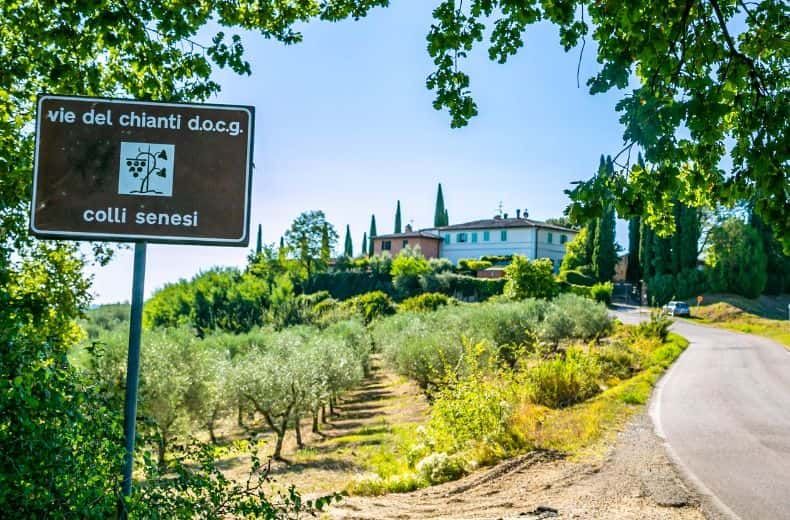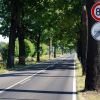If you’re planning an Italian road trip it’s wise to get familiar with the rules of the road before you set off. Our quick and handy guide will help to get you up to speed on Italian road signs, so you can hit the road on the Alps and the Amalfi Coast and everything in between, with peace of mind.
For more advice on cruising the Italian streets, including what to do in the event of a breakdown read our Driving in Italy guide.
‘Speed limit’ signs
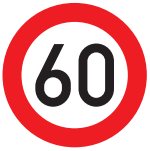
Speed limit signs in Italy are identical to those used in the UK and throughout Europe. However, you’ll have to remember one key thing: the speed limits are given in kilometres per hour (km/h) rather than miles per hour (mph).
So, pay special attention to your speedo.
‘Minimum speed limit’ sign
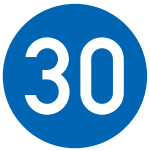
This one should look familiar too. Minimum speed limit signs appear on a blue circle with white numbers in the middle. Just like the maximum speed limit signs the number refers to km/h.
You should maintain the minimum speed or more at all times on a signposted road.
‘Give way’ or ‘yield’ sign
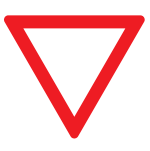
The ‘give way’, or ‘yield’ sign, is much like our equivalent road sign but without any text. When you see a red triangle pointed downward with a white centre, make sure you give way to any oncoming or crossing traffic.
‘Stop’ sign
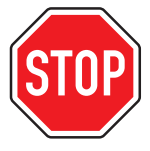
Although the Italian for stop is ‘fermare’, the road signs in Italy opt for the English instruction: ‘STOP’.
The words appear in white on a red octagon, but you might notice some older signs where the word STOP appears in a red triangle inside a red circle. Unusual we know.
Look out for markings in the road next to the signs to see where you should bring your car to a stop.
‘Roundabout ahead’ sign
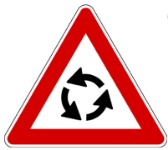
Roundabouts are very common in Italy but thankfully their road signs are easy to understand. Look out for three arrows arranged in a circle on a red triangle.
You might notice that the arrows point counter-clockwise rather than clockwise as they appear in the UK, that’s simply because traffic moves on the right-hand side of the road in Italy. So, remember to give way to vehicles approaching from the left.
‘General warning’ sign
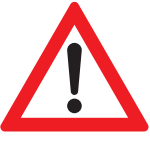
An exclamation mark inside a triangle is usually used to warn drivers about a hazard ahead, at least in most of Europe.
In Italy however, the sign should be read as a warning that cars are prohibited, so be extra vigilant when you spot this one on your travels. The sign might appear next to another sign that explains the problem in the road, albeit in Italian.
‘Minimum following distance’ sign
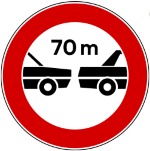
Some roads will display a sign showing the front and back end of two cars next to a measurement. The signs are designed to tell drivers the minimum distance they should keep apart from vehicles in front of them.
Distances are given in metres.
Instant cover available
• 24/7 rescue at the roadside
• Help to get home if your vehicle can't be fixed
• 5 star Defaqto rated cover

‘No motor vehicles with four or more wheels’ sign
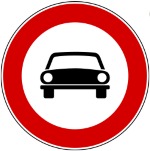
The front of a car in a red circle will appear at the entrance to roads that are prohibited to cars. If you come across the sign, you’ll need to find an alternative route.
‘Max width’ and ‘Max height’ signs
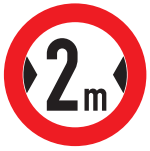
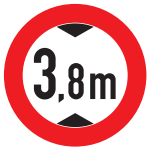
Sometimes called ‘horizontal clearance’ and ‘vertical clearance’ signs, max width and max height signs are almost identical to equivalent signs in the UK.
As always, the signs use metric (metres and centimetres) measurements rather than the imperial (feet and inches) that we’re more used to.
‘Restricted vehicular traffic zone’ sign
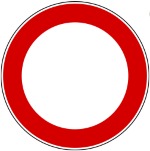
A red circle on a white background appears in ZTLs or ‘Zonas Trafficio Limitato’, Limited Traffic Zones to you and me. They are sometimes blank and might specify that certain vehicles, including buses, motorcycles or even cars are prohibited from using a ZTL.
Look out for the signs in major Italian cities.
‘No parking’ and ‘No stopping’ signs
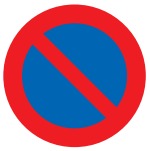
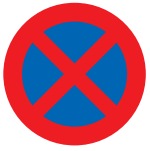
These signs may be difficult to tell apart at first. The circle with one horizontal line indicates that no parking is allowed while two horizontal lines indicates no stopping.
Both signs apply to the side of the road they appear on.
‘Priority road starts’ sign
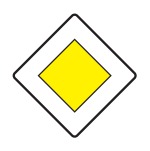
This yellow diamond with a white border indicates the start of a priority road. It simply means you have the right of way until the end of the priority road.
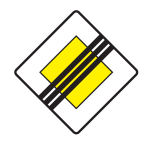
The ‘End of priority road’ sign uses the same yellow diamond with a white border but features a black horizontal line.
‘Crossroads with priority from right’ sign
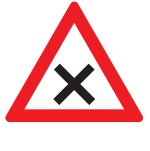
A black cross inside a red triangle indicates that at the next crossroads, vehicles travelling from the right have priority.
Sometimes called an uncontrolled crossroad, you should lower your speed and pay extra attention to cars approaching from the right after you see the sign.
- Driving in the EU after Brexit – everything you need to know
- The top 10 best road trips in Europe
- Driving abroad? Be prepared, take out European Breakdown Cover
‘Direction of main road’ signs
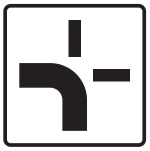
It may look like an angry emoji face tilted to one side, but this unusual sign tells drivers the direction the main road will take.
The thicker line indicates a larger road and bends according to the layout of the road ahead. Although smaller roads may appear straight ahead, you’ll need to use your indicators to enter them and leave the main road.
‘Customs’, ‘Police roadblock’ and ‘Toll’ signs
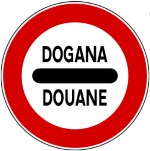
Signs asking drivers to stop their vehicles for customs checks, police roadblocks and to pay tolls look almost identical.
You’ll need to pay attention to the words used to work out what they mean. ‘Dogana’ means customs, ‘Alt Stazione’ is usually used for toll stations and ‘Polizia’ appears before police roadblocks.
You’ll need to stop your car according to road markings or as directed by a police officer or customs official and wait for further instructions.

Instant cover available
• 24/7 rescue at the roadside
• Help to get home if your vehicle can't be fixed
• 5 Star Defaqto rated cover


